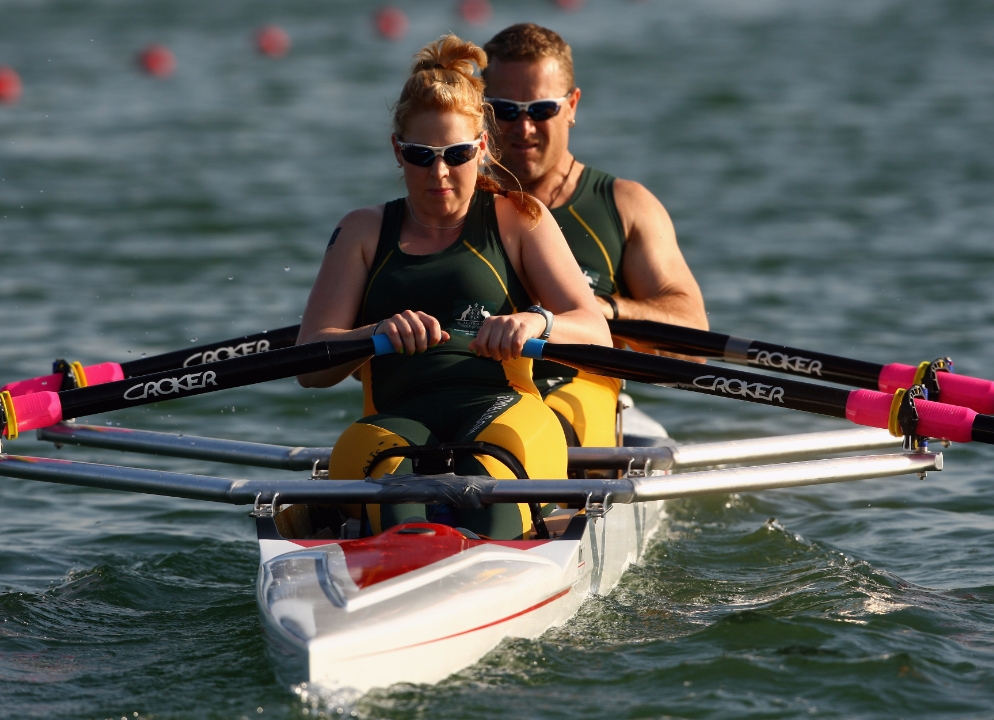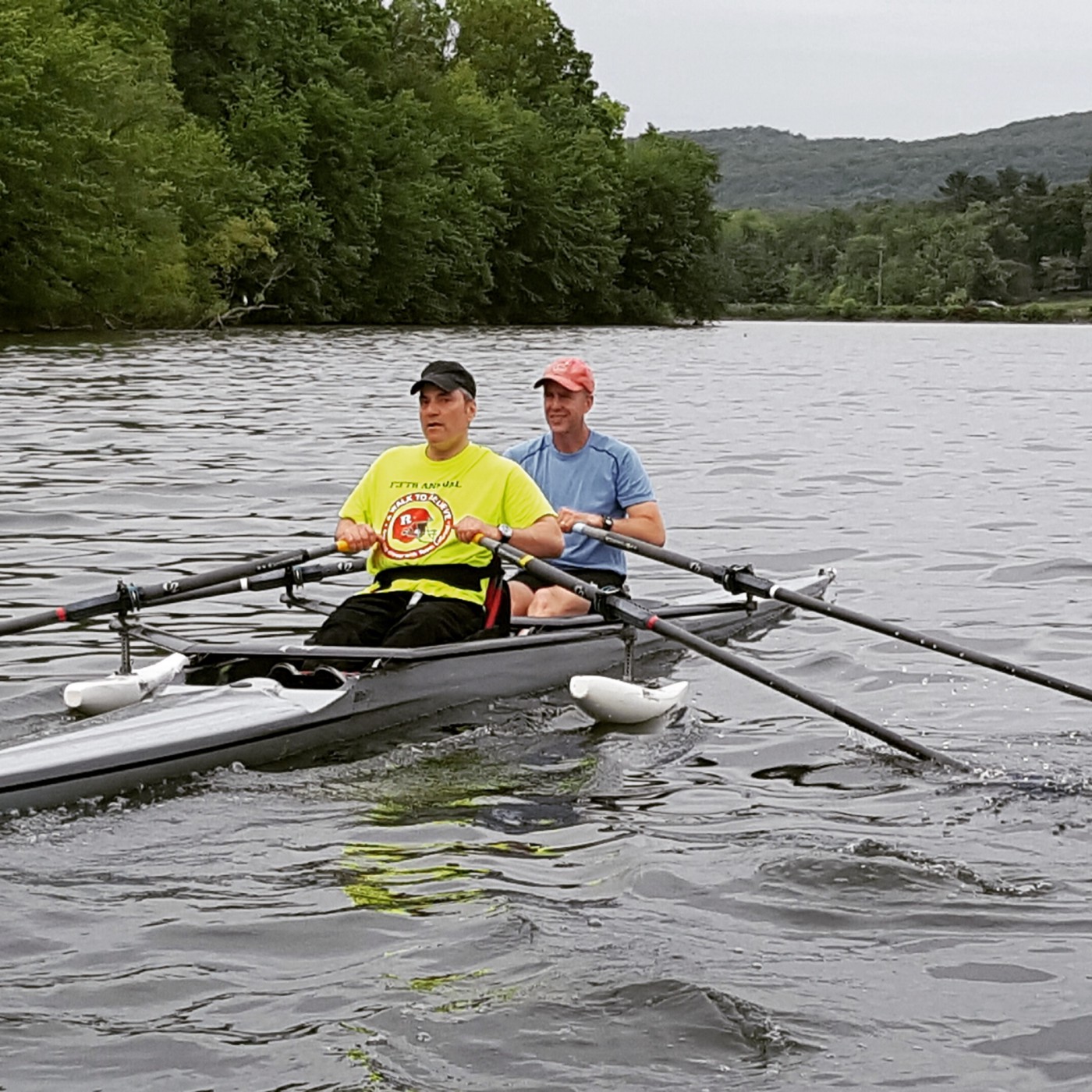Adaptive rowing gets me on the water
I’ve always loved water sports — swimming, kayaking, water skiing, scuba diving — but until my recent discovery of adaptive rowing, the only water I’ve sported in has been in the shower.

Rio 2016 Paralympic Games. A lung-busting challenge, this is rowing’s third appearance at the Paralympic Games – it was included as a competitive sport at Beijing 2008. The races will be held at Lagoa Rodrigo de Freitas, with one men’s, one women’s and two mixed events.
By Ronald Gold, New Mobility September 7, 2016
Since a bicycling accident that left me a paraplegic almost five years ago, I’ve been under doctor’s orders to stay away from the pool, the ocean, and the lake. A sleepy driver slammed into me head on, and the force of the impact thrust me off my bicycle and my femur through my thigh. Today, I still have an open thigh wound, so no water for me.
For years now, I’ve been yearning to go into the water. If I couldn’t go in, maybe I could go on.
| Adaptive Rowing |
I was drawn to rowing because I knew it would make me feel as if I was in the water again. If I could go out on the water, I could try to capture the freedom that water sports offer and life in a wheelchair does not.
When I told my wife what I was going to do, I knew she’d encourage me, but she instantly wanted to know: What if you fall in? Not to worry, I told her. The adaptive shells are built not to capsize. No one ever falls into the water. There is no issue whatsoever. I’ll be fine.
And so it was this summer that the members of the Rockland Rowing Association in New York helped get me down onto the dock, out of my wheelchair, and into the boat. They had positioned pontoons on the side of the boat to add extra stability, and away we went.
Well, not so fast.
The sport is considerably harder than it looks. I went out in a two-person shell with Ivan Rudolph-Shabinsky, a masters rower and my buddy from grad school. I have the strength to row, but the rhythm is challenging and staying in sync with your rowing teammates is the key. Even with Ivan following my every move to keep us aligned, it wasn’t pretty. Still it was great to be out on the water. It was beautiful and tranquil, and the Lake DeForest reservoir is incredible — long and narrow, perfect for rowing. It was a lake I rode by numerous times during my cycling days.
By the end of my session, I had adjusted my seating to allow me to row more efficiently and we had a nice pace going.

Adaptive rowing Ron and Ivan. Showering is My New Water Sport. Ron Gold
| Not Exactly Smooth Sculling |
You might have guessed it wasn’t exactly smooth sailing, uh, sculling. My second time out on the lake, the evening was beautiful. All was good until my new rowing partner’s rigging came out.
Remember how I told my wife that these boats never capsize? Well … with the weight now out of synch, the next thing I knew we both ended up in the water. Getting my thigh wet was the least of my worries just then. The more pressing emergency was that I was in the water with my paralyzed feet strapped into shoes and my paralyzed waist strapped into the seat.
I could see the headlines now, “Bicyclist survives head-on collision only to drown in rare rowing mishap.” Nope, not quite. Thankfully, my feet came out of the shoes easily, and while I was underwater, I quickly managed to unstrap myself from the seat, and then grabbed the shell and pulled my head above the water. The club’s safety boat came racing over, and they hoisted me out of the water.
Luckily, there were no ill health effects of being submerged in water. In fact, I have to say — despite some seconds of terror — it felt really good to be in the lake.
I can’t wait to see what my next time out on the water brings. I hear that the Head of the Charles has a two-man category for one adaptive rower and one nondisabled athlete. Any interest, Ivan?
After becoming a T12 paraplegic in a November 2011 bicycling accident, Ron Gold left his 25-year career in international equity markets and started LeanOnWe, which helps families find and privately employ caregivers.
![]() Source New Mobility
Source New Mobility
Also see
What you need to know to enjoy every single moment of the Rio 2016 Games Official Spectator Guide
Recreational rowing program Calgary Rowing Club
